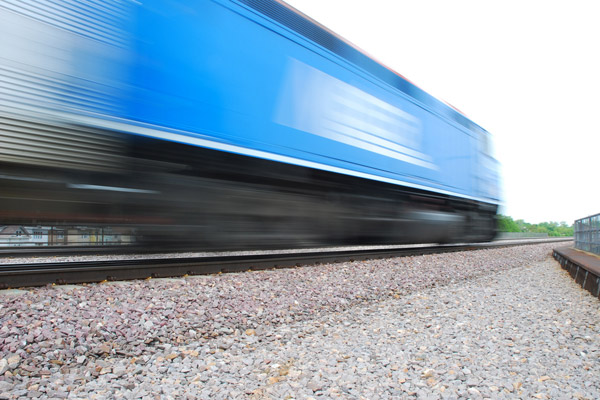
Yesterday Rahm Emanuel laid out the broad strokes of the city's $7 billion infrastructure plan, which includes a lot of stuff that's already been reported on—the completion of the Bloomingdale Trail, Bus Rapid Transit, the public-private-partnership behind the retrofitting of city buildings. The excellent Bloomberg Businessweek has a good piece about its potential benefits and risks. I've written about some of these before, including the PPP Chicago Infrastructure Trust and its precedents in Europe. But this bit from the New York Times coverage struck me as relevant:
With the plan, Chicago is taking a leading role among cities and states struggling to keep their infrastructure from crumbling further but frustrated with legislative gridlock in Washington, said Robert Puentes, director of the metropolitan infrastructure initiative at the Brookings Institution.
“There is tremendous interest in doing something different — people aren’t waiting for the federal government to raise the gasoline tax or pass the carbon tax and have money raining down,” he said. He cited successful campaigns in “can-do states” that include Colorado, Washington, Arizona and Virginia to finance economic development projects with public-private partnerships, and Los Angeles’ vote in support of a major transportation referendum in 2008.
Mr. Emanuel, who served in the White House in two administrations and as a member of Congress, said “I will not tie this city’s future to the dysfunction in Washington and Springfield.”
The gridlock in D.C., specifically about transportation funding, is staggering right now, as Jon Hilkevitch reports:
In the case of an impasse, layoffs would begin to ripple across the transportation-construction industry after the states stop receiving federal funding to pay for highway and transit projects, officials said. Up to 1.9 million jobs could be cut, according to a Senate report that cited U.S. Department of Transportation statistics.
Chicago-area projects that would be potentially threatened include the CTA's plan to buy more new buses and rehabilitate rail stations, Metra's program to install new switching equipment on the Milwaukee District line to reduce delays and Pace's purchase of coach buses for its bus-on-shoulder service on expressways and possibly the Illinois Tollway, according to the Regional Transportation Authority.
The impasse was just kicked down the road 90 days, keeping the status quo going instead of implementing the two-year, $109 billion plan passed by the Senate. The curious thing is that Republicans have managed to divide themselves, at least slightly, with their House alternative, and the division is centered in Chicago for obvious reasons:
So it was noteworthy that three House members — two Republicans and a Democrat, all from Illinois — gathered here for a news conference this week to denounce the latest House transportation bill, one championed by the House speaker, John A. Boehner.
The three, like scores of Democrats and a fair number of Republicans, were particularly rankled by the bill’s plan to stop the 30-year practice of putting aside 20 percent of the highway trust fund dollars for public transit, which is a crucial mode of getting around in many areas of the country.
That would be Judy Biggert (13th District), Robert Dold (10th District), and Dan Lipinski (3rd District)—all of whose districts are served by Metra lines, El lines, or both. New York Republican Peter King is also unhappy about the gutting of public transportation, as you'd expect from someone who serves Long Island. Ray LaHood—former Rep, John McCain supporter, and current Secretary of Transportation—was even more explicit:
“And it also is the most anti-safety bill I have ever seen. It hollows out our No. 1 priority, which is safety, and frankly, it hollows out the guts of the transportation efforts that we’ve been about for the last three years,” LaHood added. “It’s the worst transportation bill I’ve ever seen during 35 years of public service.”
He's not mad at all his fellow Republicans, just the House:
“[The Senate it. They passed a bipartisan bill with no dissenting votes in their committee. Because they worked together, and they really tried to put together a bill that reflects the transportation values of the senators,” LaHood said, then laid the blame for a one-sided House bill squarely at the feet of Transportation and Infrastructure Committee Chairman John Mica (R-Fla.). “That’s not what happened in the House. Look, this is obviously a one-man show in the House.”
This was a point I tried to get across when discussing the Chicago Infrastructure Trust PPP (which, at $225 million, is obviously still modest in scope compared to the rest of the local plan). The Republican party, as it currently exists, is not just an inheritor of Ronald Reagan's legacy—it's also a descendent of Margaret Thatcher and the British Conservatives, who came to power after a recognizable period of financial and social collapse. They slashed public spending and turned much of it over to public-private partnerships. Here, it seems that one party is doing the slashing, and the other will likely turn more and more towards the other part of the Conservatives' plan to keep up.
Photograph: -Tripp- (CC by 2.0)



